Paleontology centre inside a quarry exhibits the bones of a prehistoric reptile
This concrete pavilion built in the centre of a Polish quarry is a paleontological research centre that protects the remains of a small prehistoric reptile discovered in the 1980s (+ slideshow).
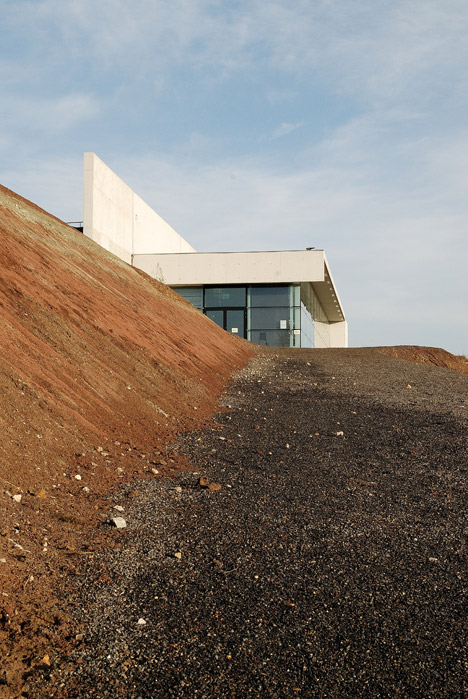
Polish studios OVO Grabczewscy Architekci and Goczolowie Architekci were commissioned by the Dinopark Association to build the Paleontological Pavilion on a dig site in Krasiejów, a small village in Opolski province.
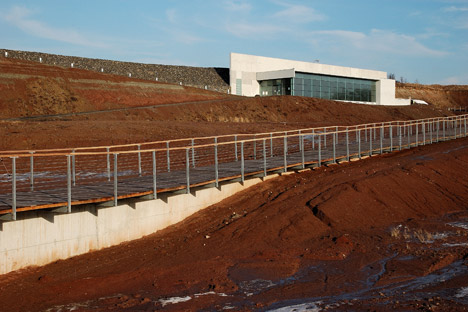
Fossilised remains of Silesaurus Opolensis – a small herbivorous reptile dating from the Late Triassic period (approximately 230 million years BC) – were unearthed by stone quarrying on the site in the 1980s.
"The Paleontological Pavilion was created with the idea of protecting and exhibiting the unique fossils of Triassic reptiles and fossilised amphibians found in Krasiejów," explained the architects.
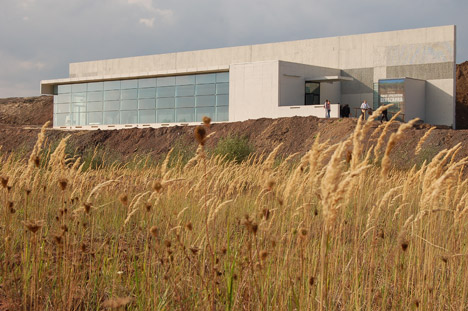
"The specific spacious structure of Krasiejów and its area – interlacing the ribbons of forests, the Mala Panew river windings, meadows, fields – are the ground configurations, the precious entirety which we want to modify as well as respect," they added.
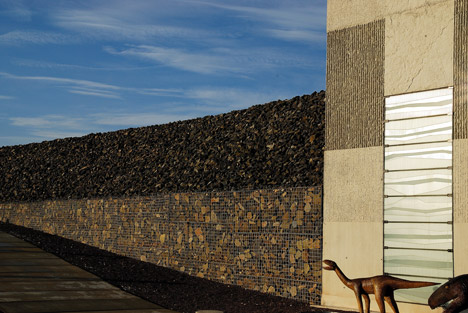
A reinforced concrete slab that forms the back wall of the centre acts as a large retaining wall that, in conjunction with rows of gabion rock cages, prevents the earth from caving into the crater where the pavilion stands.
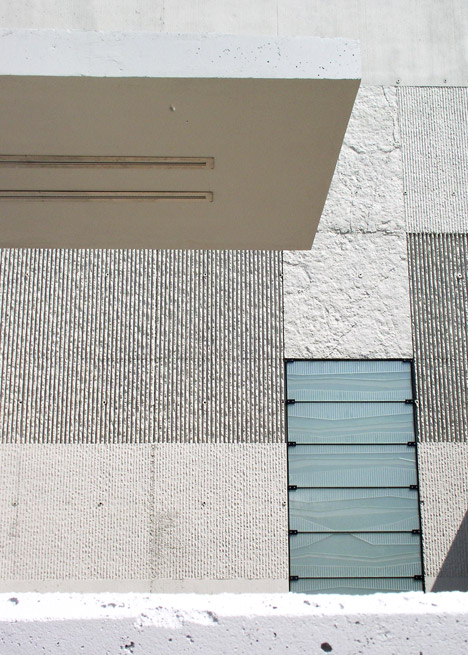
"The pavilion centre and the retaining wall protecting the slope are the integrated space composition," explained the design team. "The retaining wall also constitutes the pavilion north wall and makes the upper-viewing terrace."
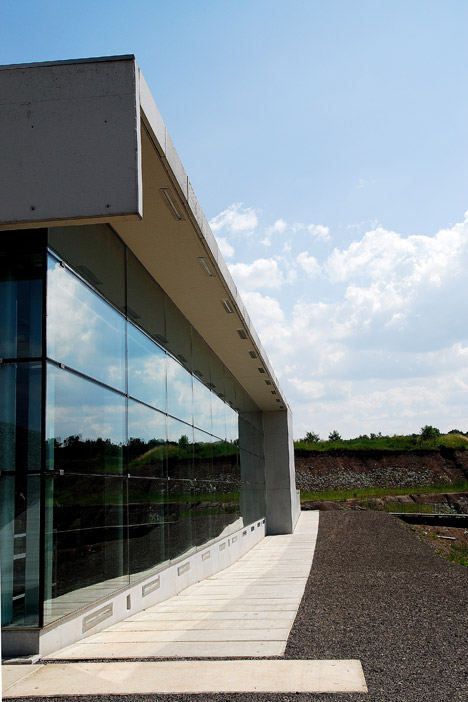
The concrete features a textured pattern that references the layered geological composition of the site revealed by quarrying. The designers describe it as "a delicate, diversified composition paradoxically more visible by violent human interference".
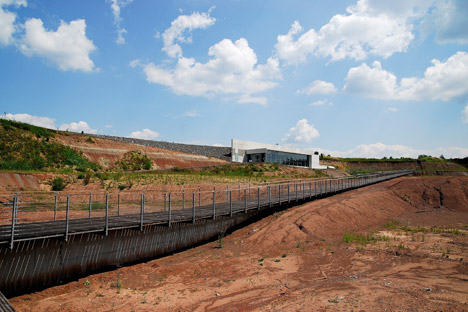
The south and west facades of the pavilion are glazed, giving views over the muddy landscape where a long wooden bridge can be seen trailing across the 30-hectare site.
Inside, a glass floor is raised over the earth on a steel grate, allowing visitors to view the exposed fossils without causing damage.
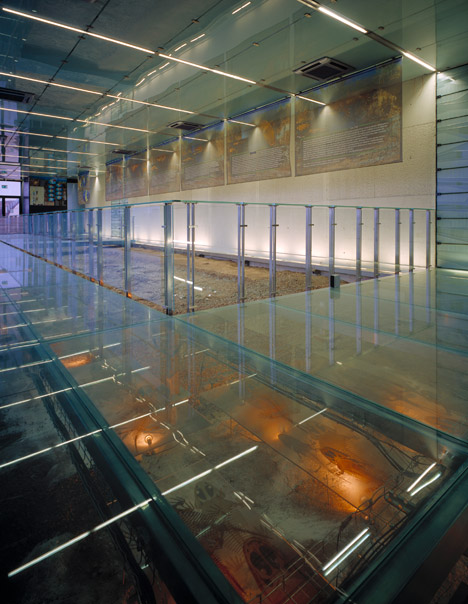
OVO Grabczewscy Architekci and Goczolowie Architekci won an international competition to design the pavilion in 2003. They carried out building works and restoration of the quarry area, completing the project in 2012.
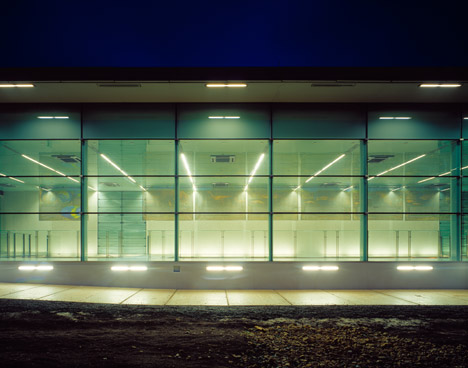
Photography is by Daniel Rumiancew.
Project credits:
Architects: OVO Grabczewscy Architekci, Goczolowie Architekci
Project team: Beata Goczoł, Witold Goczoł, Oskar Grabczewski, Katarzyna Chobot, Maciej Grychowski
Client: City of Ozimek and Dinopark Association